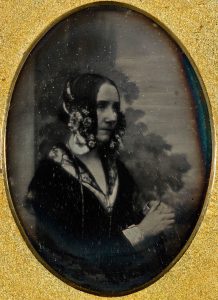Inspirational women: Ada Lovelace
22/03/22
A visionary mind who saw the potential of computers long before they existed in real life. In addition, the first ever computer programmer in the history of computer science.

Ada Lovelace was born in England on December 10, 1815. She was the daughter of Lady Anne Byron and Lord George Byron – the famous English poet.
As part of her education, Ada studied mathematics and science, with her mother encouraging this pursuit at a time when wealthy women were normally excluded from such intellectual endeavours. However, Ada excelled academically and was intrigued by the new world of scientific possibility still waiting to be discovered in the 1800s.
At the age of 17 Ada met the mathematician and inventor Charles Babbage, who introduced her to his difference engine, a precursor to the calculator. Fascinated with the device, Ada saw Charles Babbage as her mentor, and continued to work with him even after she became the Countess of Lovelace, and the mother of three children.
A little later, in 1843, Charles started to develop a more complicated version of the difference engine called analytical engine, which in theory was a basic, analogue version of the electronic computer. It was then that he asked Ada to translate some technical French text from his engineer into English.
Seeing the potential of the analytical engine, Ada realised that the machine could follow patterns not only to calculate numbers, but also to form letters. In her notes, she published the first algorithm to be carried out by a machine, coming up with the idea for a computer language.
Although the analytical engine was never completed, Ada’s notes showing how computers work by following patterns were republished in a book about digital computing in 1952, with the scientific world recognising her as a programmer long before the first computer was invented.
Ada Lovelace died on November 10, 1852, more than a hundred years before her notes were rediscovered. To acknowledge her vision and contributions to computer science, a computer language was named in her honour in 1975 – ADA, which is still in use today.
_____________________________
This March, Code Week pays homage to the women that have had and continue to have a big influence on the world of tech and computers. From inventors, to thinkers, to developers, to teachers, the world as we know it today wouldn’t be the same without them
Sources:
https://en.wikipedia.org/wiki/Ada_Lovelace
https://www.britannica.com/biography/Ada-Lovelace
https://www.computerhistory.org/babbage/adalovelace/


